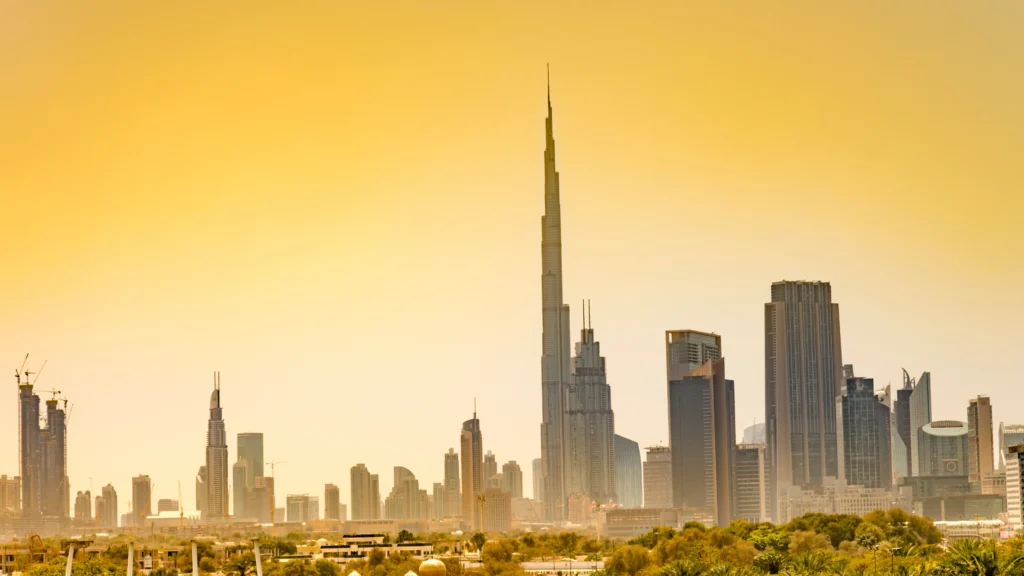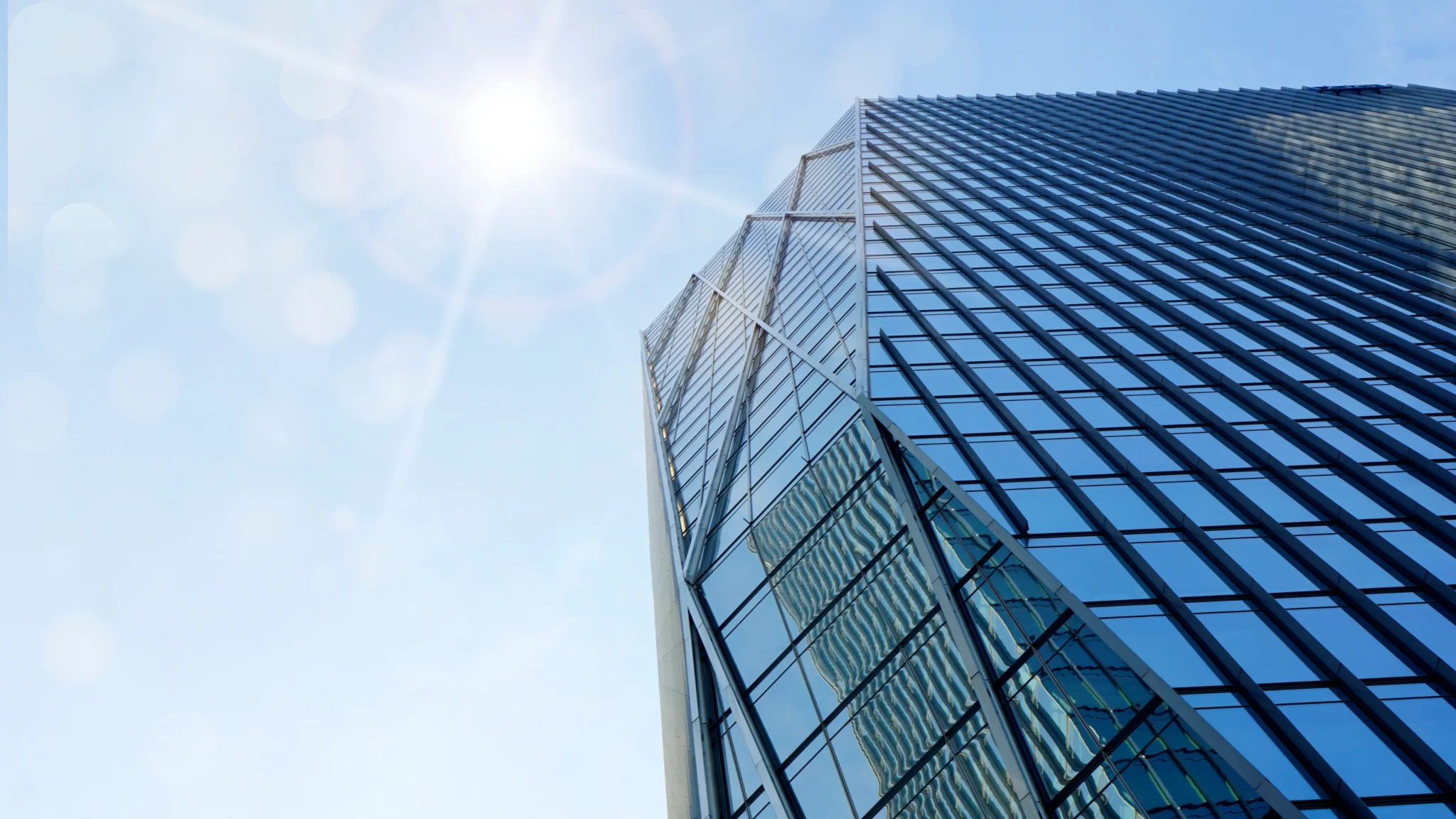Dubai International Financial Centre in Dubai and Abu Dhabi Global Market on Al Maryah Island sit ninety-minutes apart by car yet compete on the same global stage. Both are fully on-shore, offer English-language courts, welcome foreign ownership, and specialise in channeling capital between Europe, Asia, and Africa. Still, founders sense different personalities the moment they start a licence conversation. Those personalities and other factors are what we’ll be comparing between DIFC and the ADGM today.
DIFC feels like a seventeen-year-old city within a city, home to bulge-bracket banks and a skyline of glass canyons. ADGM, ten years younger, sells itself as a nimble laboratory where venture studios test ideas and family offices rub shoulders with sovereign wealth funds. The sections that follow unpack the hard numbers and softer nuances behind that choice, letting investors compare timing, cost, legal certainty, talent depth, and future-proofing under a single lens while comparing all the important details, such as the benefits of the DIFC and the ADGM, as well as other things.

Comparing the institutional backbone of DIFC and ADGM
Each centre is effectively three bodies working in harmony. DIFC houses the DIFC Authority, the Dubai Financial Services Authority, and the DIFC Courts. ADGM mirrors the model with its Registration Authority, the Financial Services Regulatory Authority, and ADGM Courts. The practical upshot is that licences, commercial registry tasks, and court disputes remain under the same island of law but separate desks, making governance predictable. The only structural quirk when comparing ADGM and the DIFC in this matter is that the DIFC Authority also signs every real-estate lease inside its precinct, an extra layer that sometimes slows office negotiations.
Historical milestones and growth trajectories
DIFC opened its doors in 2004 with fewer than one hundred licensees and a single office tower. By 2024 it had crossed the five-thousand-firm threshold, expanded into DIFC 2.0 plans that will triple gross floor area, and rolled out a fintech hive responsible for more than one billion dollars in disclosed venture deals. ADGM arrived later, issuing its founding law in 2015, but its growth curve has proved steeper when comparing it to the DIFC.
In less than a decade it attracted over two-thousand operational entities, launched a courts system ranked among the top ten for digital filings, and unveiled an innovation hub that now spans four interconnected towers. The difference in vintage shapes perception. DIFC sells a seventeen-year track record of precedents and enforcement statistics, while ADGM markets youthful momentum and the chance to co-design brand-new regimes before they ossify.

Law and precedent: Codified versus direct common law
DIFC adopted a codified common-law statute book inspired by England yet distinct. Judges happily cite English cases for guidance, but they are not compelled to follow them when the DIFC code diverges. ADGM, by contrast, incorporated English law wholesale, so an English Court of Appeal decision from 2019 can, in principle, bind an ADGM judge tomorrow unless local regulations carve out an exception. For multinationals with London counsel this feels familiar, arguably shaving a sliver off legal-opinion costs.
Licensing pathways, categories and timing
Both regulators sort applicants into five categories that match the risk profile of planned activities. Category 4 in either zone covers arranging and advising, category 3 handles asset-management, category 2 captures dealing on own account, while category 1 reserves space for full commercial banking. DIFC sets a single application fee per firm based on its highest category, starting around fifteen-thousand United States dollars for a mainstream advisory shop and rising to seventy-thousand for a bank. ADGM charges per activity, which means a single advisory line can cost only five-thousand dollars but three parallel permissions can quickly converge on DIFC levels.
Speed differs more than fee schedules. A straightforward DIFC category 4 application routinely runs four to six months from introductory call to in-principle approval, longer if cyber-security reviews or outsourced cloud infrastructures enter the mix. ADGM’s FSRA keeps a reputation for faster sprints, sometimes issuing in-principle letters inside eight weeks for vanilla fund-manager licences. That edge is narrowing as volumes climb, yet early-stage fintech founders still report friendlier calendars in Abu Dhabi.
The real cost of operating, fees, space, and people
Regulatory fees tell only part of the story. Every DIFC firm must lease physical space within the district. Hot-desk style flex offices start close to thirty-five-thousand dollars a year for a two-person room, and mid-sized fitted offices generally land between fifty-five and ninety dollars per square foot. ADGM offers WeWork and Regus suites that begin near fifteen-thousand dollars for an equivalent two-person allocation, though prime waterfront floors can match Dubai prices once companies graduate to bespoke layouts.
Salary inflation matters as well. Compliance officers authorised by the DFSA now command packages north of one-hundred-thirty-thousand dollars plus gratuity. FSRA-approved officers hover closer to one-hundred-thousand, partly because of a shallower senior-talent pool. Rent plus head-count therefore explains why many seed-stage managers open in ADGM first, then shift to DIFC once assets under management justify the heavier fixed base.
Our working hours: Monday to Friday, 9 AM – 6 PM GMT+4
Human capital and lifestyle considerations
Quality-of-life metrics sometimes tip the scales more than licence fees. DIFC sits in the heart of downtown Dubai, five minutes from Michelin-starred restaurants, international schools, and the region’s busiest airport. Executives can land on a Monday morning, clear immigration through a dedicated fast-track lane, and be in a boardroom before nine. ADGM is woven into Abu Dhabi’s business district where traffic is lighter, apartment rents trend twenty percent lower, and beachside residential compounds give families more space per dirham.
For teams relocating from Europe, the quieter pace of Al Maryah Island can reduce culture shock, while younger professionals often gravitate toward Dubai’s nightlife and co-working events. Both centres grant employees renewable two or three-year visas, but DIFC residents also access the DEWS savings scheme that converts end-of-service gratuity into monthly pension contributions, a perk multinationals increasingly cite in job offers.
Supervision and enforcement culture
The DFSA is older, slower to impose rule changes, and highly data driven. It conducts programmed risk assessments every quarter, demands external audits annually, and routinely levies seven-figure fines for misleading statements. FSRA supervision is equally serious but slightly more dialog-led. Officers schedule monthly calls with founders, offer sandbox exemptions when products break new ground, and so far have published fewer headline-grabbing penalties.
"Both regulators share intelligence with the UAE Central Bank’s financial-intelligence unit, so the tactical difference is style, not substance."
Ecosystem advantages that tilt the scale
DIFC hosts the region’s densest cluster of international banks, insurance carriers, law firms, and Big-Four advisers, which means a founder can solve a cross-border tax question over coffee without booking a flight. The district’s FinTech Hive accelerator, meanwhile, pairs seed-stage companies with Emirates NBD, Visa, and Microsoft mentors, often leading to pilot contracts. ADGM counters with its RegLab sandbox, where crypto custody firms and digital-asset exchanges tested models long before Dubai introduced its Virtual Asset Regulatory Authority. On the structuring front, ADGM’s SPV and foundation regimes offer advantages such as allowing managers to set up tax-neutral holding layers in twenty-four hours, a timeline DIFC still struggles to match.
Digital asset sandboxes and crypto rulebooks
Crypto entrepreneurs view the two hubs through a distinct lens. DIFC currently relies on the DFSA Investment Token regime for security-token issuances while funnelling pure virtual-asset businesses to Dubai’s separate VARA authority in the neighbouring free zone of Jumeirah Lakes Towers. ADGM, by comparison, houses a full digital-asset framework inside the FSRA rulebook, covering custody, exchanges, brokers, and DeFi-style lending under a single umbrella. This means a token custodian can operate under one licence and passport synthetic products to professional investors without leaving Al Maryah Island. That cohesive architecture often accelerates time-to-market for Web3 initiatives, yet some global banks still prefer the VARA plus DIFC dual-entity stack because it keeps high-risk crypto activities ring-fenced away from core client assets.
Choosing between tradition and agility
Taken together, the comparison shows DIFC excels when brand prestige and immediate access to tier-one service providers matter most. A Swiss private-bank parent, for example, may gain greater comfort placing its Gulf hub inside a district that already shelters Goldman Sachs, Standard Chartered, and JPMorgan. ADGM, in contrast, shines for entrepreneurs who value budget headroom, faster minimum-viable-product launch, and the ability to iterate through several permissions without remortgaging the runway.
Get the most relevant information about business life in Dubai
Why real founders pick one over the other
Inward listing gateway
A Latin-American commodities group recently chose DIFC to float a one-hundred-million-dollar sukuk because the on-site Nasdaq Dubai platform allowed simultaneous clearing in Dh and USD, and investors recognised the DIFC court’s track record enforcing English-law security agreements.
Venture studio playground
A Khobar-based AI health-tech builder moved its holding company to ADGM after discovering the FSRA would accept an ADGM category 3C fast-track licence tied to multiple pre-seed funds. Lower base capital requirements, plus a WeWork address for fifteen-thousand dollars, saved precious equity dilution.
Family office hybrid
A South-Asian conglomerate with factories in Kenya and Bangladesh split the difference. It registered an ADGM SPV to hold minority stakes in African subsidiaries, then opened a DIFC branch for treasury operations, giving its bank relationships the Dubai postcode they preferred while keeping asset-holding fees lean.
Hidden costs and value multipliers beyond the statute book
Visa quotas scale with office size, so the thirty-five-thousand-dollar DIFC suite yielding four visas can appear costly until one factors in ancillary perks: DIFC employee IDs grant fast-track immigration lanes at DXB, subsidised gym memberships, and network events where a single handshake may land a mandate worth far more than the rent. ADGM introduces its own soft dividends, companies inside the free-zone receive priority invitations to sovereign wealth fund demo days and enjoy simplified access to Abu Dhabi Bank corporate accounts, a non-trivial edge when global de-risking restricts offshore structures.
Stepping stones: When moving from one hub to the other makes sense
Licences are jurisdiction-specific, but nothing stops a firm from incorporating sister entities. A common path sees a fintech wallet operator launch in ADGM to prove customer acquisition economics under an Innovation Testing Licence, then migrate senior management and core processing to DIFC once the VC term sheet demands the bigger address. Conversely, DIFC-based wealth managers often spin up ADGM foundations for clients seeking Sharia-compliant legacy planning.
"The two centres act less like rivals and more like complementary rungs in a regional growth ladder."

Tax clarity and economic substance requirements
Corporate-tax reform swept the Emirates in 2023 with a nine percent federal levy on mainland profits, yet both DIFC and ADGM secured zero-rate guarantees for qualified free-zone activities until at least 2070. To enjoy that exemption, entities must meet economic substance tests that include having adequate staff or outsourced service agreements, board-level decision-making inside the zone, and audited accounts filed annually.
DIFC already integrates the DEWS pension scheme into those filings, while ADGM attaches a simplified substance declaration inside its annual return. International groups therefore achieve tax neutrality as long as they house intellectual property or treasury functions within their licensed offices and avoid booking mainland revenue through the free-zone entity.
Looking ahead: Policy signals in the pipeline
Both jurisdictions are racing to capture digital-asset flows. DIFC launched the Dubai Digital Assets Business Group in early 2025, promising dedicated rulebooks for tokenization and custody by year-end. ADGM responded with consultation paper 5-2025, proposing a passporting protocol that would let an FSRA-authorised exchange list securities tokens directly on a London-recognised venue. Tax policy also evolves. DIFC’s fifty-year zero-rate guarantee runs until 2074, while ADGM’s matching decree expires in 2070, yet rumours suggest Emirates Cabinet may extend both to preserve parity.
Balancing cost with credibility
When comparing DIFC and the ADGM, founders must weigh more than published fee grids. A DIFC licence may set you back an extra forty-thousand dollars in year one, yet the brand halo could cut future fundraising costs or accelerate institutional client onboarding. An ADGM launch can save that cash, shorten the runway to cash-flow positivity, and unlock creative SPV stacking, but some European counterparties will still ask whether you maintain a presence in Dubai. The smart play is to map your product road-map, capital stack, and strategic investors, then pick the jurisdiction that cancels the biggest friction points.

-
Crypto and digital asset regimes differ: ADGM houses a unified framework under the FSRA, streamlining digital asset licensing. DIFC relies on the DFSA’s token rules and directs crypto businesses to the separate VARA zone in Dubai.
-
Both centres offer zero corporate tax until at least 2070/2074, provided economic substance requirements like staffing, audited accounts, and in-zone decision-making are met.
-
DIFC suits firms prioritising prestige and immediate ecosystem access, while ADGM supports budget-conscious launches and innovative SPV structuring. Many firms ultimately maintain entities in both zones for strategic balance.
-
Visa policies, infrastructure, and perks vary: DIFC’s DEWS scheme and fast-track airport clearance contrast with ADGM’s quieter environment and priority access to Abu Dhabi capital networks.
How Aston VIP guides your decision from first call to final licence
Navigating category definitions, capital formulas, lease negotiations, and opening the right bank account can overwhelm even veteran CFOs. Aston VIP’s regulatory team sits in both districts, maintains live fee and processing-time trackers, and fields a bilingual bench of former DFSA and FSRA officers who draft business plans the authorities like to approve.
Whether you need a quick ADGM category 3C approval for an emerging-markets VC fund or a full DIFC category 2 authorisation for a market-making desk, we handle policy writing, outsourced compliance officer placement, and post-licence filing so you stay focused on product and investors. Start the conversation through our contact page and let us translate ambition into an operational licence without the hidden surprises. Reach us anytime through our contact page.












